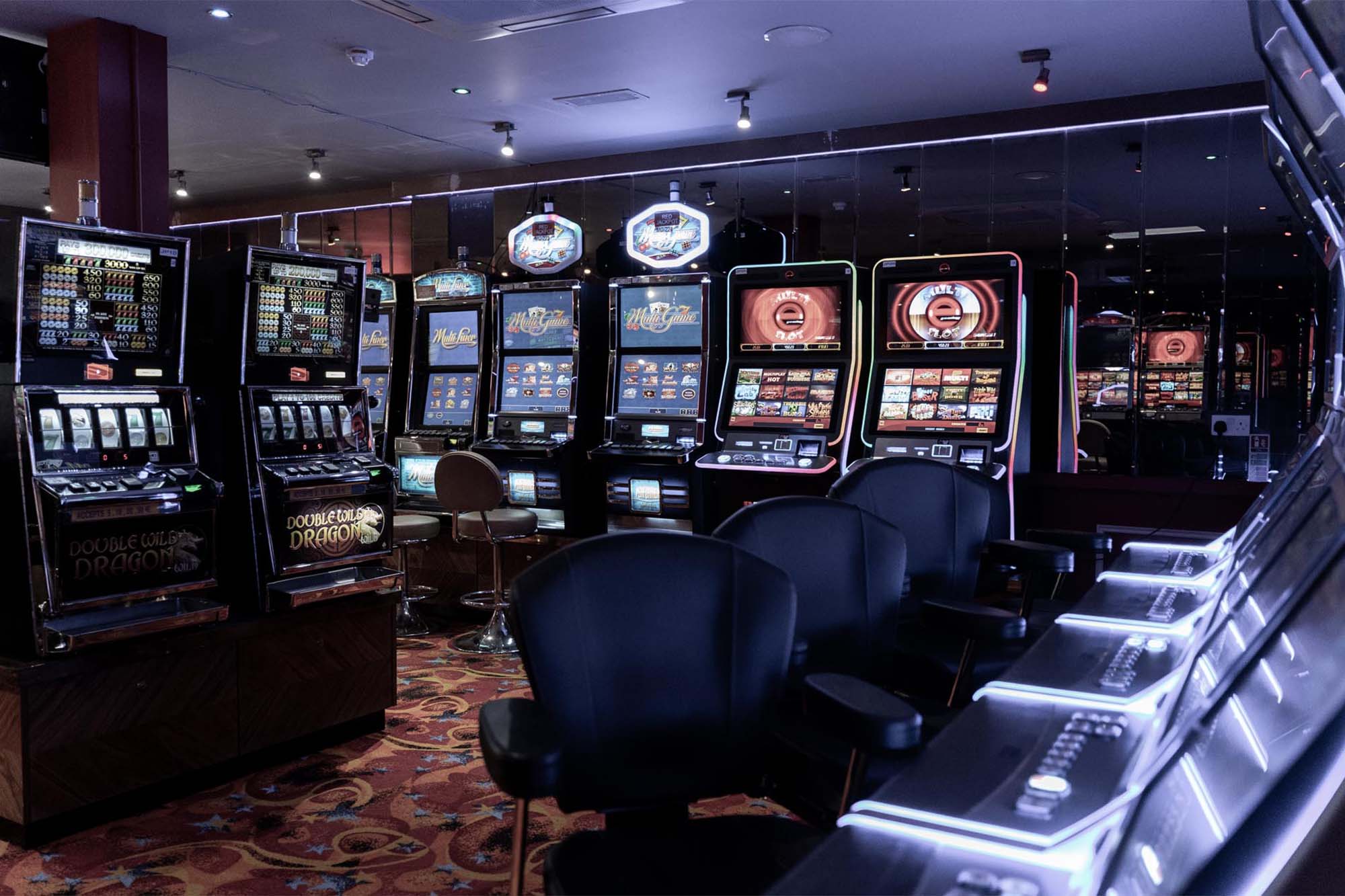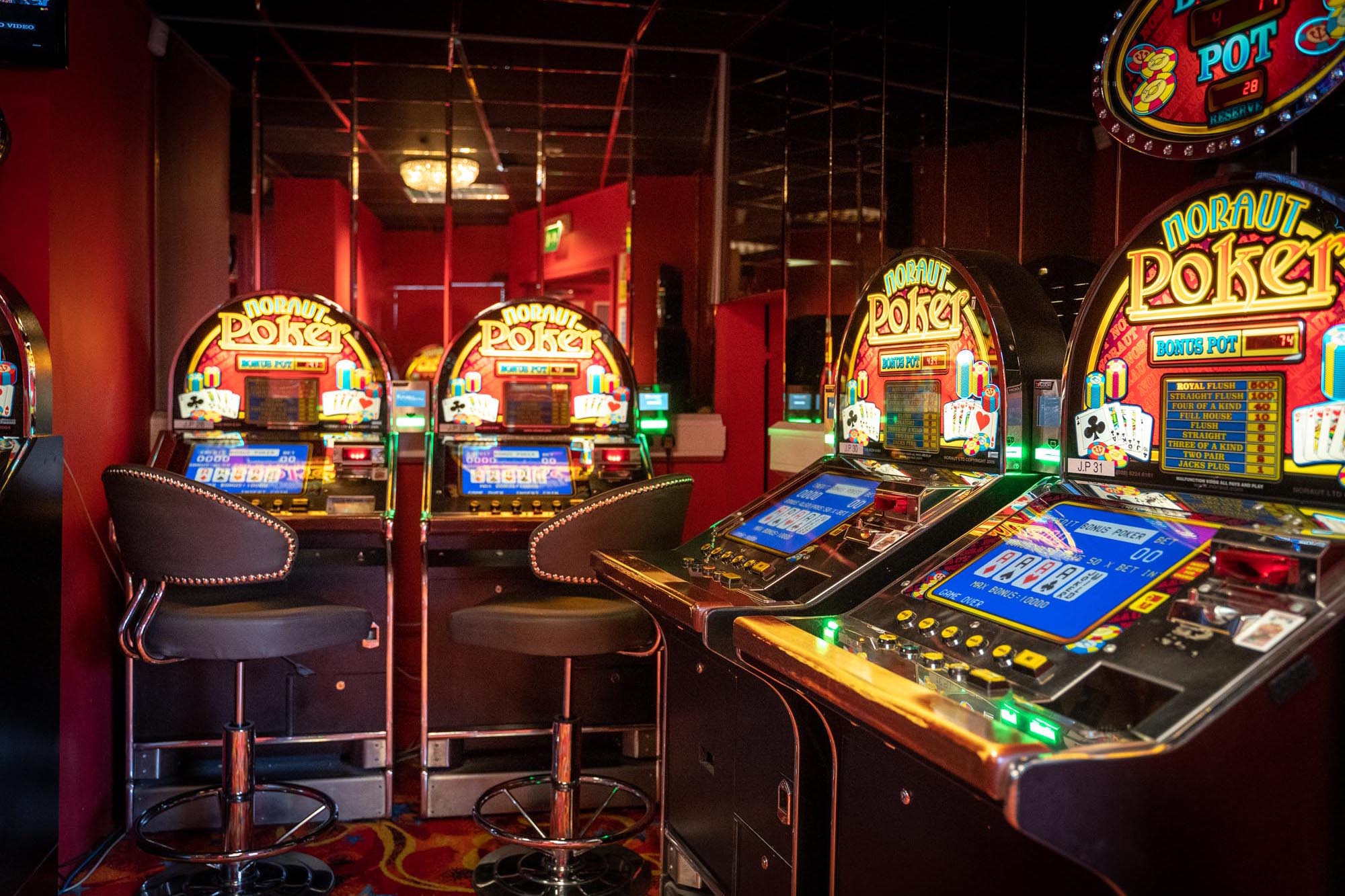When enjoyed responsibly, gambling can be an entertaining activity for adults who like the thrill of chance. There’s nothing quite like the feeling of testing your luck, whether you’re going head to head with the house at a blackjack table, competing against friends in poker, spinning the roulette wheel or sitting down to some slot machine action.
However, for some people the gambling experience isn’t all fun and games. Problem gambling refers to any repetitive gambling behaviours that a person displays despite harm and negative consequences. Think of the poker player who wants just one more buy-in, despite suffering heavy losses already, or the punter in the bookmakers who has spent all afternoon tearing up slips and chasing a win that just isn’t coming.
The highs and lows of gambling and gaming can make them addictive experiences, which is why it’s so important to be aware of the risks and establish healthy gambling habits. The industry has evolved to reflect this growing awareness, with safeguards in place to help you be a responsible gambler. Premier Casinos are committed to responsible gambling practices, which you can read more about here. In this article we’ll discuss some helpful tips and insights that contribute to a safe and healthy gambling experience for Irish gamblers.

Healthy Gambling Advertising
First, let’s look at the landscape of the gambling industry today. If you’ve paid any attention to the world of gaming, sports and entertainment in the past few years, you’ll have noticed a large uptick in the visibility of responsible gambling messages. TV adverts for betting sites and bookmakers end with a clear warning statement, urging gamblers to consider the risks involved, or at least to be aware that they may lose more than they win.
The Advertising Standards Authority Ireland (ASAI) has been regulating what shows up in our adverts for over forty years, and in Section 10 of their code they cover the issue of gambling. The ASAI code defines the conduct of marketing communications campaigns within the industry, and is an example of the efforts being made to promote a healthy gambling culture in Ireland.
For example, the code declares that marketing communications for gambling should not:
There are numerous other rules outlined, with a specific section dedicated to children, who are obviously a vulnerable demographic when it comes to the crossover between sports, games and gambling.
Gambling Regulation Bill
Recognising that gambling laws in Ireland weren’t keeping up with an industry that has gone through enormous changes in the digital era, the Irish government drafted a bill in 2022 that proposed extensive regulation for gambling activities in Ireland. Prior legislation dated back to 1956, which meant there was a lot of reformation needed!
The Gambling Regulation Bill 2023 (as it will be known when it passes into law at the end of this year) includes a raft of measures intended to protect the public against the risks of gambling. There will be a ban on gambling advertising on social media and streaming services that requires you to “opt in” to receive ads, as well as a total ban on any advertising on TV or online between the hours of 5.30am and 9pm each day.
Those who are under the age of 18 will be safeguarded in a number of ways, including prohibitions on allowing children into any premises where gambling occurs and protections to ensure children do not have access to remote or online gambling. Additionally, any sporting club that has members under the age of 18 will not be allowed to be sponsored by a gambling company.
Showing an appreciation of the big picture when it comes to those who are most affected by gambling addictions, the Gambling Regulation Bill also includes plans for a levy to be imposed on the €8 billion gambling industry. The purpose of this is to use the money gathered to create a Social Impact Fund, which will help to cover the cost of treatment for gambling addictions, and to educate people and raise awareness.
Finally, the government will also set up a National Gambling Exclusion Register. All gambling companies operating in Ireland, either physically or online, will have to register with the authority. If you decide that you have an issue with gambling and need help stopping, you can add your details to the register to self exclude.

Self Exclusion
One of the issues for problem gamblers or those with a gambling addiction is the accessibility of gambling services. Online casinos and bookmakers are readily available to anyone with a phone or a computer and an internet connection, and there are plenty of physical premises that you can easily walk into and start gambling immediately.
While this is a positive reflection on the scale of the gambling industry today, it’s not such good news for people who have recognised they have an issue with gambling and wish to stop. For those people, self exclusion can be an effective way of limiting their access to gambling services.
Self exclusion involves a person making a formal request to betting operators to refuse them access to their products or services for a specific period of time. If it’s a casino premises or a betting shop, they should have a form to fill out that requires you to provide a photo alongside it so that the staff will recognise you. Online gambling operators allow you to request self exclusion via the various communication channels they offer, for example email, a customer support line, live chat or through a form on the actual site itself.
Helpful Tips for Responsible Gambling
According to the latest evidence, around 12,000 people in Ireland aged over 15 are problem gamblers. However, those that are classified as being at moderate or low-risk of problem gambling behaviours is ten times that number. One in five men aged between 15-24 who have gambled in the last year are either problem gamblers or fall into the “at risk” category, meaning they are starting to exhibit potentially problematic gambling behaviours.
What these numbers show is that this is a problem affecting a large amount of people in Ireland, which is why it’s of utmost importance that a message of responsible and safe gambling is promoted as much as possible. With that in mind, let’s take a look at some ways that you can keep yourself safe while gambling and gaming.
Only gamble with what you can afford.
Responsible gambling begins with a fundamental principle: never wager more money than you can comfortably part with. Before you start gambling, establish a strict budget that is separate from your essential expenses like bills and groceries. This way, you won’t be jeopardizing your financial stability.
It’s essential to view gambling as an entertainment expense, much like going to the movies or dining out. If you find yourself tempted to dip into your savings or borrow money to gamble, it’s a clear sign you’re exceeding your limits. Remember, gambling should never lead to financial strain or stress. Stick to your predetermined gambling budget and ensure your financial well-being remains intact.
Set limits and stick to them.
Knowing your limits is a crucial part of responsible gambling. Start by determining how much time and money you can afford to allocate to your gambling activities, and then set clear limits and don’t deviate from them. Online casinos often offer features like deposit limits, session time limits, or loss limits. Take advantage of these tools to keep yourself in check.
Additionally, set win and loss limits for each gambling session. When you reach these limits, whether it’s a predetermined monetary value or time frame, discipline yourself to stop and walk away. Sticking to these limits prevents impulsive decisions driven by emotions and helps you maintain control over your gambling activities, ensuring they remain enjoyable and within your means.
Avoid chasing losses.
One of the most critical aspects of responsible gambling is to resist the urge to chase losses. Losing streaks are a natural part of gambling, and attempting to recover your losses by placing larger bets can lead to a downward spiral. Accept that losses are a possibility and part of the game. If you find yourself on a losing streak, it’s often best to take a break, reassess your strategy, or walk away for the day. Remember, gambling should be about enjoyment, not desperation.
Never allow gambling to interfere with your personal relationships.
Gambling should never come at the expense of your personal relationships. It’s essential to maintain a healthy balance between your gambling activities and the people in your life. Communicate openly with loved ones about your gambling habits, so they are aware of your involvement and can provide support when needed.
Avoid neglecting important events, family gatherings, or social commitments due to gambling. If you notice that gambling is straining your relationships or causing conflict, it may be a sign that you need to reevaluate your priorities and seek help if necessary.
Don’t use gambling as a means of escape.
Using gambling as an escape from life’s challenges, stress, or emotional difficulties can be a dangerous path. Instead, seek healthier ways to cope with life’s ups and downs, such as talking to a friend, practicing mindfulness, or engaging in hobbies and activities you enjoy. When you gamble to escape, it can lead to excessive and impulsive behavior, increasing the risk of problem gambling.
Take frequent breaks from your gambling.
It’s essential to take regular breaks during your gambling sessions to maintain self-control and prevent compulsive behavior. Set a timer or schedule breaks at specific intervals to step away from the game and clear your mind. Use this time to reflect on your gambling experience and assess whether you are still within your pre-set limits.
Don’t think of gambling as a way to make money.
Gambling should never be viewed as a reliable source of income. The odds are designed to favour the house or casino, and long-term profits are rare. Always approach gambling with the understanding that you may lose the money you wager. If you happen to win, consider it a bonus, but never rely on gambling as a primary income source.
Gambling and alcohol are not a good combination
The HRB report showed that a clear correlation between gambling addiction and substance use, with 13% of those with an alcohol disorder considered either an at-risk or problem gambler. Mixing gambling with alcohol impairs judgment and decision-making, making it more challenging to stick to responsible gambling practices. Alcohol can lead to impulsive betting, chasing losses, and taking unnecessary risks.
It’s advisable to limit or avoid alcohol when gambling to ensure you can make rational decisions and stay in control of your gambling activities. If you choose to drink, do so in moderation and always remain aware of how it may impact your behavior at the casino or while gambling online.
Support Services for Gambling Addiction
If you think that you may have an issue with gambling, or are not as in control of your gambling behaviours as you’d like to be, you don’t have to face this problem alone. There are plenty of services in Ireland that will listen to you and give you practical advice on how to get a handle on your gambling.
Remember, problem gambling isn’t always about extremes. We might think of gambling addicts as risking it all in high-rolling poker games or getting tangled up with loan sharks, but the reality is that toxic gambling behaviours can often be more subtle, though no less destructive. By recognising your life is being affected, you’ve taken the first step towards recovery, so well done. Contact one of the services below to take the next one.
Gambler’s Anonymous
Anonymous groups for addicts are often more closely associated with addictions like alcohol and drugs, but there is also a Gambler’s Anonymous (GA) group where members can support each other and get help. Gambler’s Anonymous meetings are held all over Ireland, and you can find out about the meeting times and locations that suit you here.
For families and friends of people with a gambling addiction, there is the option of separate meetings called Gam-Anon. These meetings are free to attend, as is the case with the Gambler’s Anonymous meetings, and offer a chance to share experiences of being affected by gambling addiction.
Extern Problem Gambling
This is a free counselling service offered in the Republic and Northern Ireland, which provides Cognitive Behavioural Therapy (CBT) to problem gamblers. CBT is a form of psychological treatment that involves retraining the behavioural habits of the mind, and is also effective in the treatment of depression, anxiety disorders, alcohol and drug use problems, and a range of mental illnesses.
Make an appointment by filling out a contact form, or use one of the numbers provided to get in touch with the centre here.
Dunlewey Addiction Service
This is a problem gambling and addiction helpline that is open seven days a week, from 09:00 – 23:00. Dunlewey Addiction Service provides information on commonly asked questions about gambling. By calling the helpline you can find out more information about the support services available to you and access free face-to-face counselling in your area.
Crosscare
If you have a problem with gambling and you live in Drumcondra, Balbriggan or Blanchardstown, then you might consider getting in touch with Crosscare. This service offers free addiction counselling to those who have been negatively affected by gambling.
